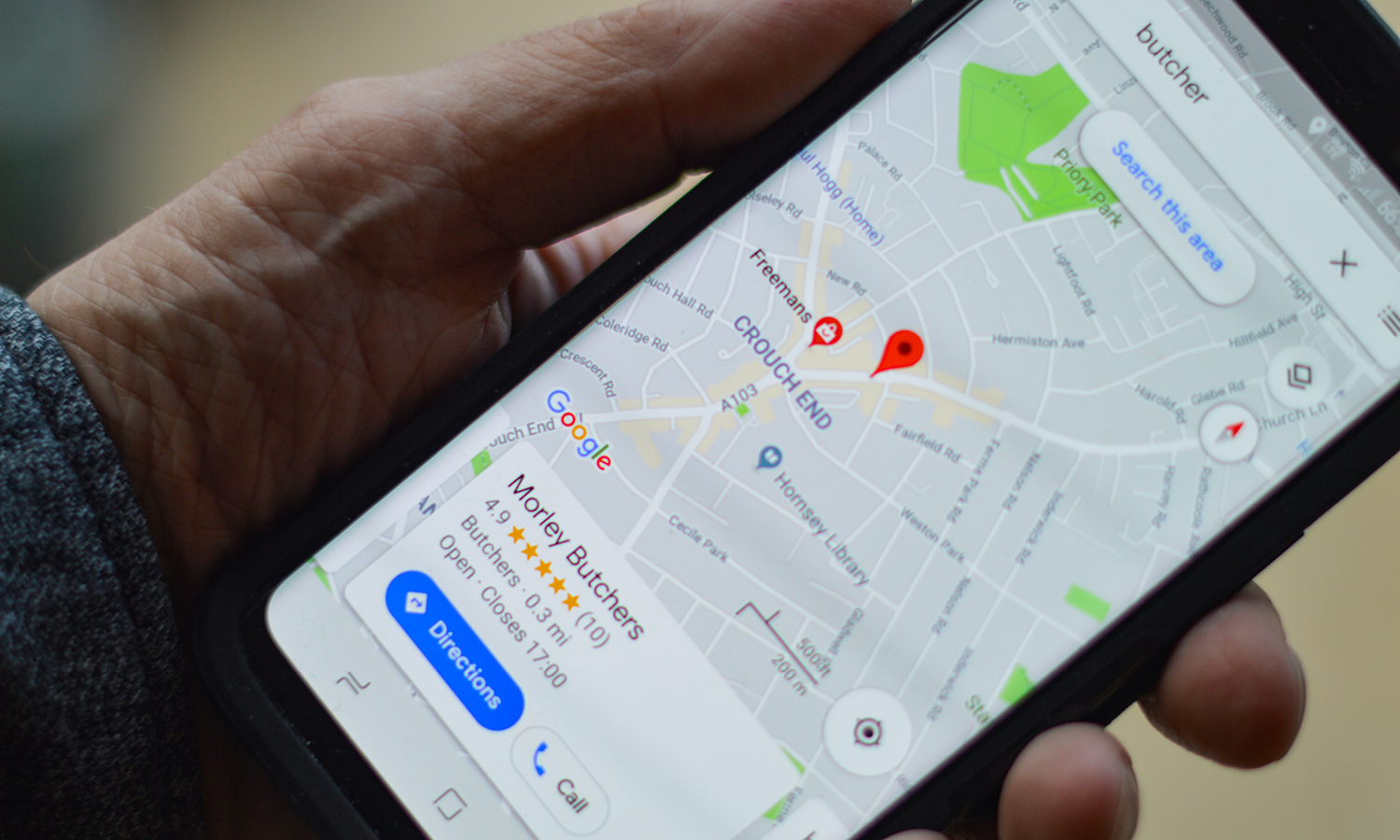Many of the business owners I talk to don’t have a blog for their website and if they do, they aren’t using it as part of their SEO strategy. A business blog does more than provide content, it is a great way to improve your SEO. Do you want to know how your blog helps with SEO?
I often tell business owners that even if nobody is reading your blog, Google is. Now, please don’t misunderstand, a blog with useless content isn’t going to do much for your business. But, even if your blog posts aren’t getting read by tons of people, having a business blog will help you rank better in Google.
How Your BLog Helps with SEO
#1 Your website will get crawled by Google more often.
Google loves fresh content. When you think about it, it makes sense. Google’s search engine aims to provide users with the newest, most up-to-date information. If Google spiders crawl through your site and don’t see anything new to update, they will crawl through your site less frequently. Why visit a site that isn’t updated?
A site that is never updated looks like a website someone created and abandoned. Even if you are building links to your website, if there’s nothing for Google to update, Google will visit it less often. Google likes content. The more content you have and the more often you update your pages and posts, the more often Google will come back to your site to index it.

#2 You can use your blog posts to SEO optimize long-tail keywords (longer search phrases)
Most business owners that know a little about SEO will optimize their main pages for short-tail keywords. Short-tail keywords are shorter keyword phrases that are only 2 or 3 words long. Short-tail keywords are more competitive and often harder to rank well in Google. For example, if you have an insurance agency, you probably have tons of competition for the keyword auto insurance.
An example of a long-tail keyword would be “auto insurance in city, State”. Long-tail keywords are more specific and are easier to rank well in Google.
Blog posts are an ideal way to use long-tail keywords to target customers searching with Google Take a look at Dunkin’ Donuts blog post “how to make cowboy coffee.” This is a great example of how you can use long-tail keywords in your blog to attract potential customers. Anyone searching for how to make cowboy coffee is a potential customer of Dunkin’ Donuts.
By having a blog, your business can write keyword-targeted content that brings in more users from search, people that wouldn’t have otherwise found your site. The more users find your site in a search, the more you will build awareness of your brand. If you have a well-developed site these Google searchers can be turned into customers.
#3 Blogs are a great way to develop internal backlinks
A backlink is an incoming link. When another page (on another website or your own) links to a page on your site that link is called a backlink. To Google, a backlink is like a “vote” or a “like” from another site. This is why backlinks are so important for SEO. The more sites that link to your site, the more Google sees that your site is “liked” by other sites and has valuable content.
While backlinks from external sites carry more weight in Google, internal backlinks also help with SEO. Every time one of your pages links to another page on your site, it indicates that this is an important page on your site. Building internal links takes some strategy, but if you do it right, you can get your blog posts and main pages to rank well in Google.
The best way to SEO optimize your pages and blog posts is to use keywords within your hyperlinks. This tells Google what the page you’re linking to is about.
If you look at this blog post, you will see I included a hyperlink to another post about why you should update old posts and pages. By using the keywords “update your pages” in the anchor text (the text for your hyperlink) I have told Google that this page is important and it’s about updating your pages.
Every time you write a new blog post, think about what content you already have and structure your sentences so that you can add keyword text links to your related content. This is also a good time to update your older posts and add a link to the new blog post you’ve just written.
If you don’t already have good keywords in your related posts, add a new sentence or paragraph so that you can link out to your new blog post. Over time as you develop your blog, you will be able to include more internal links to existing content.

#4 Blog posts tell Google more about your business and location
One of the ways Google determines what your site is about and where it’s located is based on the content on your site. If you are trying to optimize your site for local search, having blog posts with your location in the title will help you rank better in Google Maps. When Google crawls through your content, your blog posts and keywords tell Google more about what you do and where you do business.
#5 A blog keeps people on your site longer
Having content on your site will keep visitors on your site longer. This is not just important for user engagement, it’s important to Google.
If someone visits your site, reads one page, and leaves, this is called a bounce. The bounce rate on your site is one factor Google uses to decide the quality of your site and content. By using internal links within your blog posts, visitors to your site are more likely to read another related post and stay on your site longer.
Blog posts also help improve your dwell time. Dwell time is the amount of time a user spends on your page. Like bounce rate, it’s a factor that Google uses to determine the quality of your site. Because a well-crafted blog post takes time to read, naturally, it will improve your dwell time.
#6 Having a blog will help you get external backlinks
Many businesses and ecommerce websites struggle to find websites that will link to them. Having quality blog content gives related businesses and websites a reason to link to you. Aside from providing their readers with information, outbound links can help the related site’s page with on-page SEO.
When Google crawls through a page, it evaluates the links, keywords included in the links, and where the link points to. The site that is linking to your post gets value from your post because it helps their site to establish authority on that particular topic. This is especially true if the site is linking to a post on a niche topic. Having a link to a relevant, quality post is helpful for SEO for both the site that is linking out and the site receiving the link.
#7 Provides you with content for social media
By having your own blog, your business can create engaging topics to post to your social media pages. Social media is a great tool for businesses, but if you aren’t posting content that you created, you are sending your users to visit another website. You want to keep your followers engaged with your brand. Blog posts are a great way to do that.
Not only that but, posting links to your social media pages can help your website with SEO. There is some debate on whether or not links on social media pages help with SEO. While a backlink from Facebook or Twitter may or may not help directly with SEO, it can certainly help you.
Social media is one of the ways users discover content. How many times have you read an article that was shared on social media? People that might not have otherwise read your post might find it on social media, especially if it’s a quality post that gets shared.
Website owners, myself included, read blog posts on topics that are related to their business. If they find your post, they might include a link to it in on one of their blog posts or pages. It’s one way to increase your visibility and get natural links to your website.
Have I helped you understand how your blog helps with SEo?
I hope that my post has given you some food for thought on the importance of having a blog for your business. In my opinion, a blog is the best way to SEO optimize your website.
You might be thinking I don’t have time to blog. I understand how much time it takes to write a quality blog post. On top of writing blog content for my own blog, I write for clients. Blogging does take time, but I promise it’s worth the investment. If you spend just a couple of hours each week writing something for your blog and using the strategies mentioned in this post, over time you will see a major improvement in your search engine traffic.
For help with SEO writing for your business blog get in touch with me.

I am Patty Malowney, the creator of Badass Web Goddess. I am an Albuquerque SEO and digital marketing consultant. I started my first internet business in 2004 with a $40 garage sale computer and a whole lot of determination. I sold my first website, JustMommies.com to the dating company eHarmony.com in 2008. My website was acquired by another company where I worked as a consultant and editor until July, 2019.
After encouragement from friends and family, I decided to branch out on my own and start my own consulting business. I offer advice and services to local businesses on how they can rank better in Google.
In addition to running Badass Web Goddess, I am an avid blogger. I run several blogs including my internet marketing blog here at Badass Web Goddess. If you love my blog, Follow Me on Facebook or Twitter!








4 thoughts on “How Your Business Blog Helps With SEO”
Pingback: Social Media Ideas for Insurance Agents - Badass Web Goddess
Pingback: How to Get More People to Like Your Facebook Business Page - Badass Web Goddess
Pingback: What Helps More With Local SEO? Citations or backlinks? - Badass Web Goddess
Pingback: SEO for Insurance Agents - Badass Web Goddess